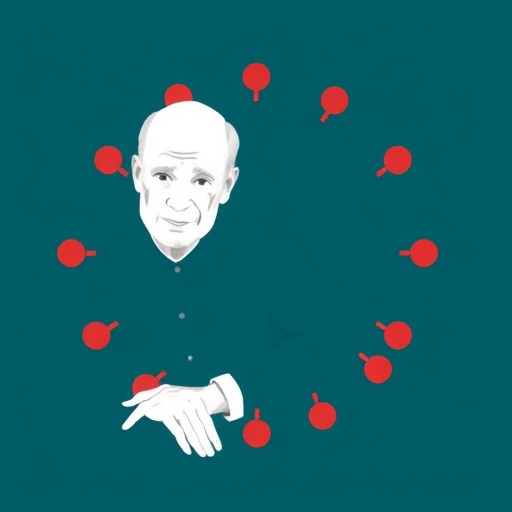In the wake of the COVID-19 pandemic, societies across the globe have witnessed an unprecedented transformation in public health paradigms, particularly concerning older adults. As researchers pivot their focus towards understanding the nuances of recovery, a compelling qualitative study emerges from the Republic of Ireland, shedding light on the experiences of older adults and their caregivers during this tumultuous period. This inquiry delves deep into the long-term recovery processes and community health management strategies that have surfaced in the aftermath of the crisis.
The study’s authors—McCarthy, Galvin, and Dockery—alongside their team, embarked on a mission to capture the authentic experiences of these vulnerable demographics. They sought to understand not just the physical implications of surviving the virus but also the socio-emotional dimensions that have, in many instances, been overlooked. The methodology employed in this research is notably qualitative, giving space for the voices of older adults and caregivers to resonate and inform the findings.
What stands out in the research is the notion of a communal journey towards recovery. The participants shared stories that revealed an array of coping mechanisms, resilience strategies, and the role of community support in navigating the post-COVID landscape. It became increasingly clear that the experience of recovering from COVID-19 extended far beyond the virus itself; it intertwined with the broader tapestry of community health, encompassing emotional and psychological well-being.
The researchers meticulously designed the study to elicit rich, detailed accounts from participants. This was pivotal, as it allowed them to document aspects of recovery that are often nuanced and complex. Many older adults discussed feeling isolated and vulnerable in the early months of the pandemic, with caregivers expressing concern about the lack of resources available to support their loved ones. This scenario has fostered a pressing need for systemic change in how health management is approached for older adults in Ireland.
As the study unfolds, themes of resilience, adaptation, and support access begin to emerge, illustrating the profound impact that community networks can have on the recovery process. Many participants spoke highly of the initiatives that sprang up during the pandemic, such as local support groups and virtual check-ins, which played crucial roles in alleviating feelings of solitude and helplessness. These anecdotal accounts are accompanied by commentary on the importance of fostering intergenerational relationships as a means of enhancing community health.
Additionally, the authors highlight the need for tailored health interventions that consider the unique challenges faced by older adults navigating post-pandemic realities. Such interventions must be informed by the lived experiences of those most affected, ensuring that health services evolve in tandem with the needs of the population. By emphasizing the importance of participatory research, the study advocates for a responsive healthcare system capable of adapting to the lessons learned during this crisis.
Moreover, the resurgence of telehealth during the pandemic is examined in the research, as many older adults embraced digital avenues for health consultations and support. The study notes that while technology played a vital role in connecting patients with healthcare providers, it also highlighted the digital divide, where not all older individuals had equal access to these resources. This constitutes a critical area of concern that policymakers must address in order to ensure equitable healthcare access in a post-COVID-19 landscape.
As the authors delve deeper into the psychological effects of the pandemic, they point to a significant increase in mental health challenges among older adults. Anxiety, depression, and feelings of loss were prevalent themes mentioned by participants, evidencing the need for integrated mental health services alongside physical health care. The research suggests that community health management strategies must pivot to include mental well-being as a core component of long-term recovery efforts.
Importantly, the study makes a case for ongoing dialogue between stakeholders within the healthcare system and community organizations. Engaging caregivers in the recovery narrative is deemed essential, as they often serve as the first line of defense in recognizing and responding to the health needs of older adults. By fostering collaborative efforts, health management can be more strategically aligned with the realities faced by caregivers, enabling them to support their loved ones effectively.
As more findings are presented, the authors recognize the role of cultural and social factors in shaping recovery narratives. In a diverse society, cultural competence becomes essential in delivering health services that are respectful and responsive to the varied backgrounds of older adults. This perspective adds depth to the findings, suggesting that recovery cannot be seen through a one-size-fits-all lens but rather requires a nuanced understanding of individual and community experiences.
Conclusively, the body of work presented by McCarthy and colleagues serves as a vital resource for understanding the multifaceted nature of recovery and health management among older adults in the context of COVID-19. Their conclusions challenge both healthcare providers and policymakers to be more proactive in their approach to seniors’ health, ensuring that the lessons learned during this crisis are not only remembered but actively integrated into future care models.
This qualitative study opens the door to further inquiries and interventions aimed at enhancing the health landscape for older adults long after the pandemic has receded. It is a timely reminder of the human element that is often overshadowed by statistics and figures; at its core, recovery is a deeply personal journey that deserves genuine attention and understanding.
Subject of Research: Recovery and community health management experiences of older adults and caregivers post COVID-19 in Ireland.
Article Title: Exploring long-term recovery and community health management: a qualitative study of older adults and caregivers’ experiences post COVID-19 in the Republic of Ireland.
Article References:
McCarthy, A., Galvin, R., Dockery, F. et al. Exploring long-term recovery and community health management: a qualitative study of older adults and caregivers’ experiences post COVID-19 in the Republic of Ireland.
BMC Geriatr 25, 736 (2025). https://doi.org/10.1186/s12877-025-06368-9
Image Credits: AI Generated
DOI: 10.1186/s12877-025-06368-9
Keywords: COVID-19, older adults, recovery, community health management, qualitative study, caregiving, mental health, telehealth.




